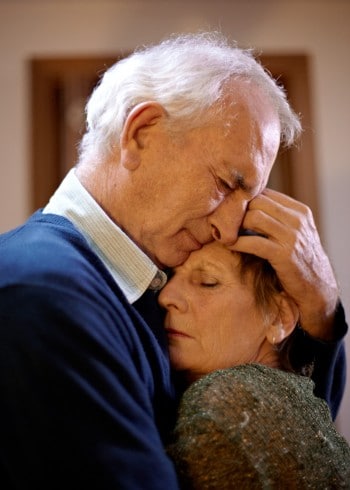And No More Shall We Part at The Bakehouse Theatre

We have no choice over how we are born, and the choice as to how and when we die is still not generally in our own hands. Call it assisted suicide or voluntary euthanasia, it’s still a crime in Australia.
Tom Holloway’s award winning play looks at the issues from the most personal of standpoints and while exploring the arguments for and against is firmly in the ‘for’ camp, and the presence of representatives of a local pro euthanasia group in the Bakehouse foyer confirms this.
Pam is dying and, without consulting Don, her husband of many years, and the father of her two children, has acquired the necessary drugs to make an end to her life of increasing suffering. They argue back and forth until her life has its forgone conclusion, and the ninety minutes canvasses all the issues of joint responsibility versus individual autonomy.
A major part of the action is on film, from Gareth Wilkes, Frazer Dempsey, Ronnie Chin and Manda Webber. We see the tree shaded Spanish style villa, with a neat kitchen, some indigenous artwork on the walls, and importantly we get close ups of two faces, even more intimately than is usual in the performance space of the Bakehouse.
The difficulty is in the text. Too often the representation of domestic speech descends into a slightly bathetic type of verbal table tennis, along the lines of “Where are the children?’’ “The children? They’re not coming.” “What do you mean the children aren’t coming?” “They came this morning.” “You’re telling me they came this morning?” “They came this morning” etc.
However the cast of two, Jacqy Phillips and Peter Green bring energy and total commitment to their roles. They know the space from years of experience and use its acoustics to great effect. Their physical presence, his height, her sinewy strength add much to their characterisation and director Yasmin Gurreeboo has rendered herself invisible in the action.
One thing that the film makes clear is that Jacqy Philips can, with the twitch of one facial muscle say more than many actors can with a well-turned soliloquy. Manda Webber’s set, a single bed on a raised platform, floats above the floor of the Bakehouse and Alexander Ramsay’s lighting gives the impression that the back wall of the theatre has been replaced with an infinite darkness. More could have been made of the impressive tree that looms behind the house. Daniel Thorpe contributes a soundscape of great subtlety.
The final moments of the play are bold and gripping in execution. The small audience responded well, but I wonder if a full house, especially of people who have been placed in this situation might not have generated a greater emotional response. I was left dry eyed. On other nights many people evidently wept.

